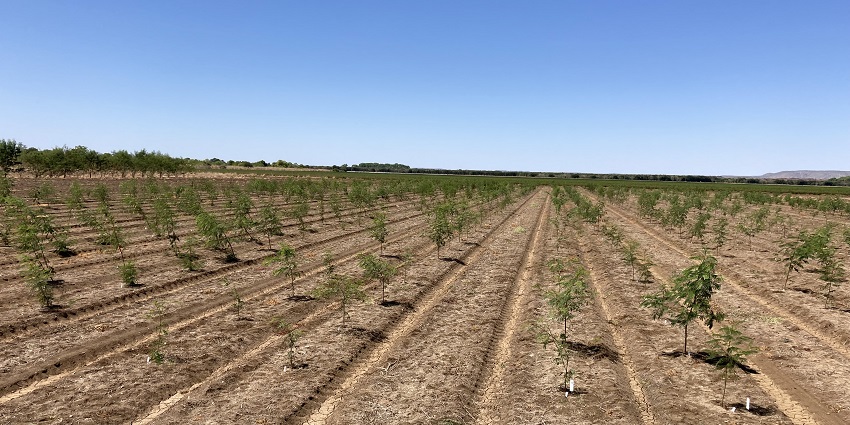
The Department of Primary Industry and Regional Development is a step closer to producing a sterile leucaena variety for the State’s northern beef industry with new trials flourishing at Kununurra and Carnarvon.
The research, led by DPIRD with co-investment from Meat and Livestock Australia (MLA) Donor Company and partnered with Murdoch University and New Mexico State University, has made excellent progress since it started in 2017.
DPIRD research scientist Clinton Revell said the team was on track to develop a sterile leucaena variety for cattle feed with significantly less weed risk.
“Leucaena is a legume fodder tree already grown for cattle feed in many tropical and sub-tropical regions of the world, including Queensland,” Dr Revell said.
“In May this year, we planted almost 3000 hybrid plants at new sites at Kununurra and Carnarvon which have established well and will be evaluated for their level of sterility.
“The new plantings are hybrids of several leucaena species and have been developed using conventional plant breeding techniques with plant material sourced from around the world.”
In the first phase of the project, department plant breeder Daniel Real made more than 1000 crosses from 11 different species of leucaena to create 130 hybrid lines.
Dr Revell said the intent was to create triploid varieties with a high level of sterility.
“This material was planted at secure field sites in Carnarvon and Kununurra in 2020, and the early results are promising with many of the hybrid lines looking productive, but with little or no flowering,” he said.
“The latest plantings are the second generation of triploid plants, created from a further 1680 hand crosses, generating 274 different families.”
Dr Revell said the diversity of growing environments across the sites would give researchers an opportunity to measure the effect on plant growth.
The new plants will also be evaluated for their growth habit, feed quality, drought tolerance and ability to reduce methane emissions from grazing cattle.
A key consideration in the next phase is the need to develop economically viable vegetative propagation systems.
Cattle feeding trials will also be required before sterile leucaena becomes a commercial reality.
Caption: Second generation triploid seedlings were planted at the secure Kununurra site (centre), alongside last year’s plants (far left).
Media contact:
Megan Broad/Donna Coleman, media liaison, +61 (0)8 9368 3937


